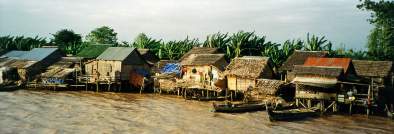

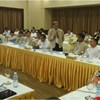
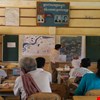
Awareness Raising on Basin Management Approach
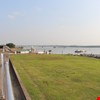
We are the River Ranger!
Forecasting & Modeling Approaches for the Flood Caused
Following a period of unusual heavy monsoon precipitation that started in mid-July and continue into August 2015, Myanmar experienced the most severe flooding in decades. The rainfall is associated with the south-west Monsoon, which occurs each year, but the situation got worse after the land fall of Cyclone Komen in Bangladesh on 30th July 2015 which brought strong winds and additional heavy rain to (north) Myanmar.
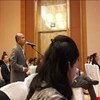
GWPSEA in 2016 Singapore Water Week
The Singapore International Water Week (SIWW) is the global platform to share and co-create innovative water solutions. The biennial event gathers stakeholders from the global water industry to share best practices, showcase the latest technologies and tap business opportunities. SIWW is part of the strategic programme of the Singapore Government to grow the water industry and develop water technologies.
These events was organized by Singapore International Water Week Pte Ltd, a company set up by Singapore's Ministry of the Environment & Water Resources and PUB, Singapore’s national water agency. The 7th Singapore International Water Week held in conjunction with the 5th World Cities Summit and the 3rd CleanEnviro Summit Singapore, from 10 – 14 July 2016 at the Sands Expo and Convention Centre, Marina Bay Sands in Singapore.
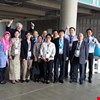
GWP Southeast Asia 32nd Steering Committee Meeting
The 32nd SC Meeting of GWP Southeast Asia was held in Singapore on 10 July 2016 before the Singapore Water Week and GWP PAN Asia Workshop.
9 Steering Committee Member from 9 countries in Southeast Asia gathered at the Marina Barrage, Singapore to discuss the program and plan for the 2016 and 2017. The plan of 2017 for core budget work plan has not been decided yet but 2 alternatives has been prepared and proposed for the countries.
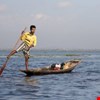
High Level Roundtable on Water Security and the SDGs - Myanmar
Coinciding with the meeting of the GWP Steering Committee (SC), a High Level Roundtable on Water Security and the SDGs was held in Yangon, Myanmar on May 24, 2016.
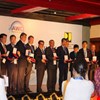
Asia Water Council
Three-day AWC First General Assembly-Summary Report
Reported by HE Mr. Watt Botkosal
Regional Chair, GWPSEA on 30 March 2016
The 1st Asia Water Council General Assembly was hosted and Co-organized by Ministry of Public Works and Housing and AWC Secretariat on 24-26 March 2016, Nusa Dua Beach Hotel and Spa, Bali, Indonesia. The AWC was established by 15 Founders of Countries and international Agencies since the 7th World Water Week in Korea. The AWC aims to raise global awareness of Asia’s water problems and promote the sustainable development of Asia by resolving regional water issues. The General Assembly aimed to discuss the AWC Constitution and the operation plan for the AWC and to share the commitments from Founders. The General Assembly was attended by about 200 participants from about 50 organizations including Minister, Vice-Minister, Directors General, Directors, Chairpersons, AWC Secretariat, national and international organizations from Asia, Europe, Africa, and Australia such as UNESCO-IHP, FAO, and ADB (Asian Development Bank), KOICA, Representative of GWP SEA, Country Water Partnership of Indonesia, national agencies etc.
Lao WP Review of Water Resource Strategy towards 2025
“Many activities had been done and showed progress in the past five years, but there are also still remaining a lot of challenges and many IWRM activities need to be done in the coming years. However, the new phase of strategy implementation has to be improved and aligned with national natural resources strategy and other water related sector plans as well as the 8th national socio-economic development plans of the government 2016-2020” said Mr. Thoumma Saluemxay, Deputy Director General of Department of Water Resources, Ministry of Natural Resources and Environment.
The workshop on 26 May 2015 highlighted that The Lao National Water Resources Strategy and Action Plan 2011-2015 implementation and development is very crucial for water sector collaboration among stakeholders in the country since the last five years of review.
Water Resource Management and Sustainable Development Agenda for Lao PDR
Lao Water Partnership with support from GWP Southeast Asia held a seminar on 15 June 2015 to support the Government of Lao PDR’s policy in relation to preparation and finalization of national socio-economic development plan 2016-2020, Strategy 2025 and Vision 2030, which related to national sustainable development and green economy.
Mr. Thoumma Saleumxay, Deputy Director General of Department of Water Resource, Ministry of Natural Resources and Environment, chaired the meeting and expressed on the important of Integrated Water Resources Management, sustainable development management in Lao PDR in in his opening remarks.